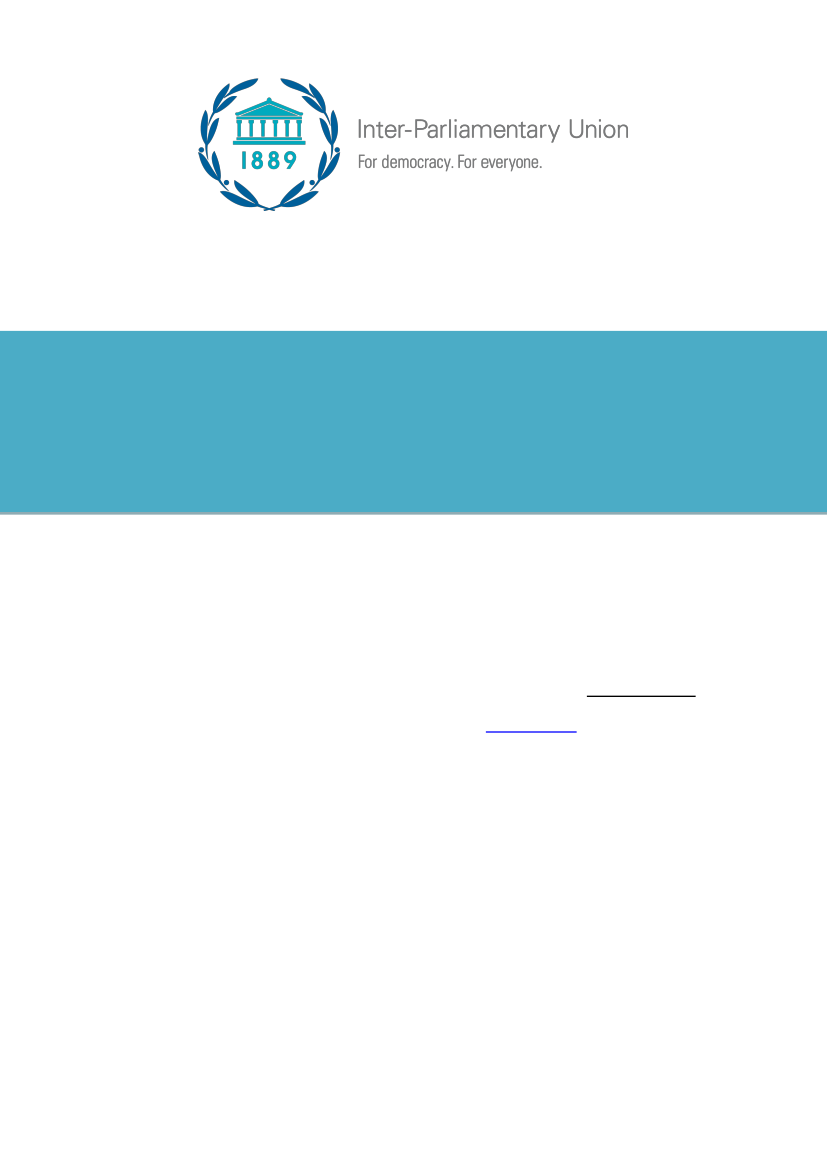
COMMUNICATIONS TOOLKIT
W
OMEN IN
P
ARLIAMENT
-2020
IWD 2021 C
AMPAIGN
This tool kit is designed for IPU Members, leadership, staff and partners. It contains
the following:
1. Key messages
2. Ready-made social Media posts
3. Press Release
For more information or if you have any questions, please contact [email protected]
All the assets are or will be available on a dedicated
Trello Board
which we will
update regularly with new material.